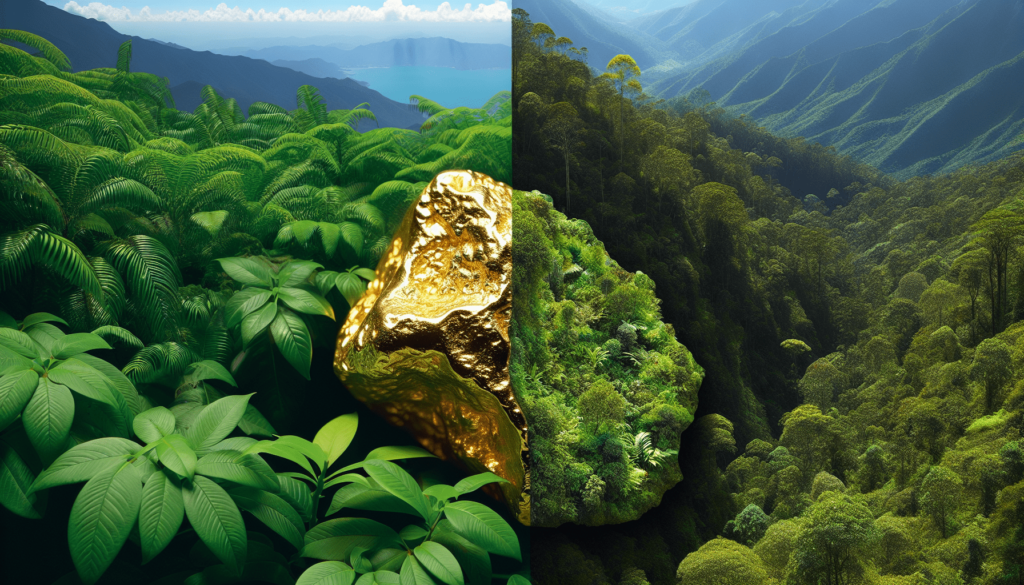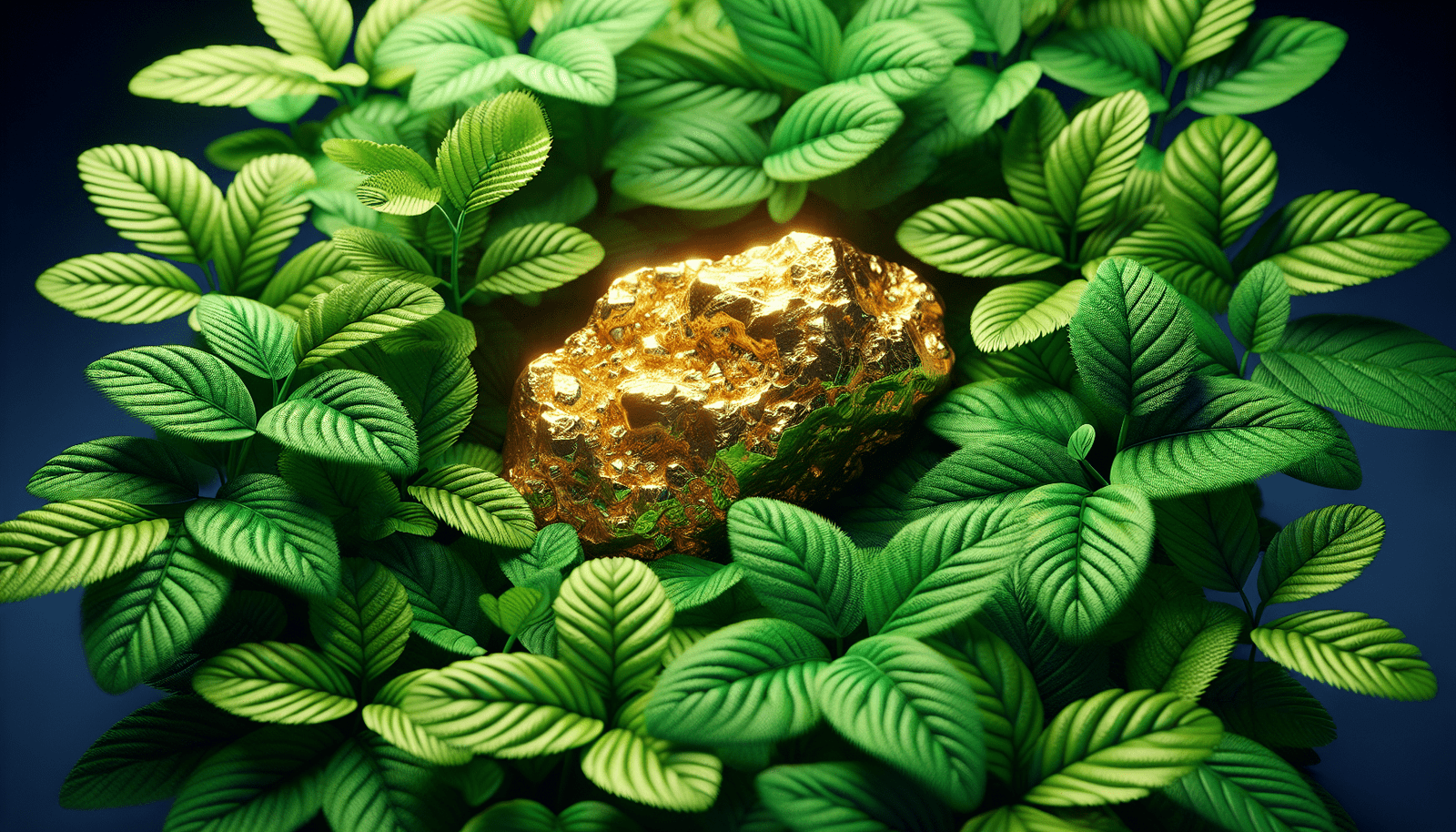Welcome to an insightful exploration on the impact of gold mining on ecosystems. As you delve into this article, you will uncover the various ways in which gold extraction processes can affect the environment, from habitat destruction to water pollution. By understanding these consequences, you can gain a deeper appreciation for the importance of sustainable mining practices and their role in preserving the delicate balance of our ecosystems. Let’s embark on this enlightening journey together and learn more about the impact of gold on our natural world. Have you ever thought about the impact that gold mining has on our environment? From deforestation to water pollution, the extraction of gold can have far-reaching consequences on ecosystems. In this article, we will delve into the various ways in which gold mining affects the environment and explore potential solutions to mitigate these impacts.

How Gold Mining Affects Ecosystems
Gold mining is a lucrative industry that has been a driving force behind economic growth for centuries. However, the environmental costs associated with this industry are often overlooked. From the destruction of forests to the contamination of water sources, the impact of gold mining on ecosystems is significant.
Deforestation
One of the most obvious ways in which gold mining affects ecosystems is through deforestation. In order to extract gold, large areas of land must be cleared of vegetation, including trees. This destruction of forests not only disrupts wildlife habitats but also contributes to climate change.
Water Pollution
Another major impact of gold mining on ecosystems is water pollution. The chemicals used in the extraction process, such as cyanide, can leach into nearby water sources and contaminate them. This pollution can harm aquatic life and pose serious health risks to humans who rely on these water sources for drinking and irrigation.
Soil Contamination
In addition to water pollution, gold mining can also lead to soil contamination. The chemicals used in the extraction process can seep into the soil, making it unsuitable for agriculture. This can have far-reaching consequences on food security and the livelihoods of communities that depend on the land for sustenance.
Solutions to Mitigate the Impact of Gold Mining
While the impact of gold mining on ecosystems is undeniable, there are steps that can be taken to mitigate these effects and promote sustainable practices within the industry. From reforestation to the use of alternative extraction methods, there are several solutions that can help minimize the environmental footprint of gold mining.
Reforestation
One of the most effective ways to mitigate the impact of deforestation caused by gold mining is through reforestation efforts. By planting native tree species in areas that have been cleared for mining, we can help restore ecosystems and create new habitats for wildlife. This not only helps offset the carbon emissions associated with deforestation but also promotes biodiversity conservation.
Responsible Waste Management
Proper waste management is essential in reducing the environmental impact of gold mining. This includes safely storing and disposing of the chemicals used in the extraction process, as well as implementing measures to prevent them from leaching into water sources. By adopting responsible waste management practices, we can minimize the risk of water and soil contamination and protect ecosystems from harm.
Sustainable Mining Practices
Another key solution to mitigating the impact of gold mining on ecosystems is through the adoption of sustainable mining practices. This includes using alternative extraction methods that are less harmful to the environment, such as bioleaching or gravity separation. By reducing the use of toxic chemicals and minimizing the disturbance of ecosystems, we can promote environmentally friendly mining practices that prioritize the health of our planet.
The Role of Stakeholders in Promoting Sustainable Gold Mining
Promoting sustainable gold mining requires the collaboration of various stakeholders, including governments, mining companies, and local communities. Each stakeholder has a role to play in ensuring that gold mining activities are conducted in a responsible and sustainable manner that protects ecosystems and respects the rights of communities.
Governments
Governments play a crucial role in regulating the gold mining industry and setting standards for environmental protection. By enacting and enforcing laws that require mining companies to adhere to environmental regulations, governments can help prevent the degradation of ecosystems and hold companies accountable for their actions. Additionally, governments can incentivize sustainable mining practices through tax breaks and other financial incentives.
Mining Companies
Mining companies have a responsibility to conduct their operations in a responsible and sustainable manner that minimizes the impact on ecosystems. This includes implementing best practices for environmental protection, such as reforestation and responsible waste management, as well as engaging with local communities to address their concerns and prioritize their well-being. By investing in sustainable technologies and practices, mining companies can reduce their environmental footprint and contribute to the conservation of ecosystems.
Local Communities
Local communities that are directly impacted by gold mining have a stake in promoting sustainable practices within the industry. By advocating for their rights and holding mining companies accountable for their actions, communities can ensure that their voices are heard and their needs are met. Engaging with stakeholders and participating in decision-making processes can help communities protect their lands and resources from the harmful effects of gold mining and promote sustainable development in their region.
Conclusion
In conclusion, the impact of gold mining on ecosystems is significant and cannot be ignored. From deforestation to water pollution, the extraction of gold poses serious environmental risks that must be addressed through sustainable practices and responsible stewardship. By implementing solutions such as reforestation, responsible waste management, and sustainable mining practices, we can minimize the impact of gold mining on ecosystems and protect the planet for future generations. It is up to all stakeholders to work together to promote sustainable gold mining practices that prioritize environmental conservation and ensure the well-being of our planet.


